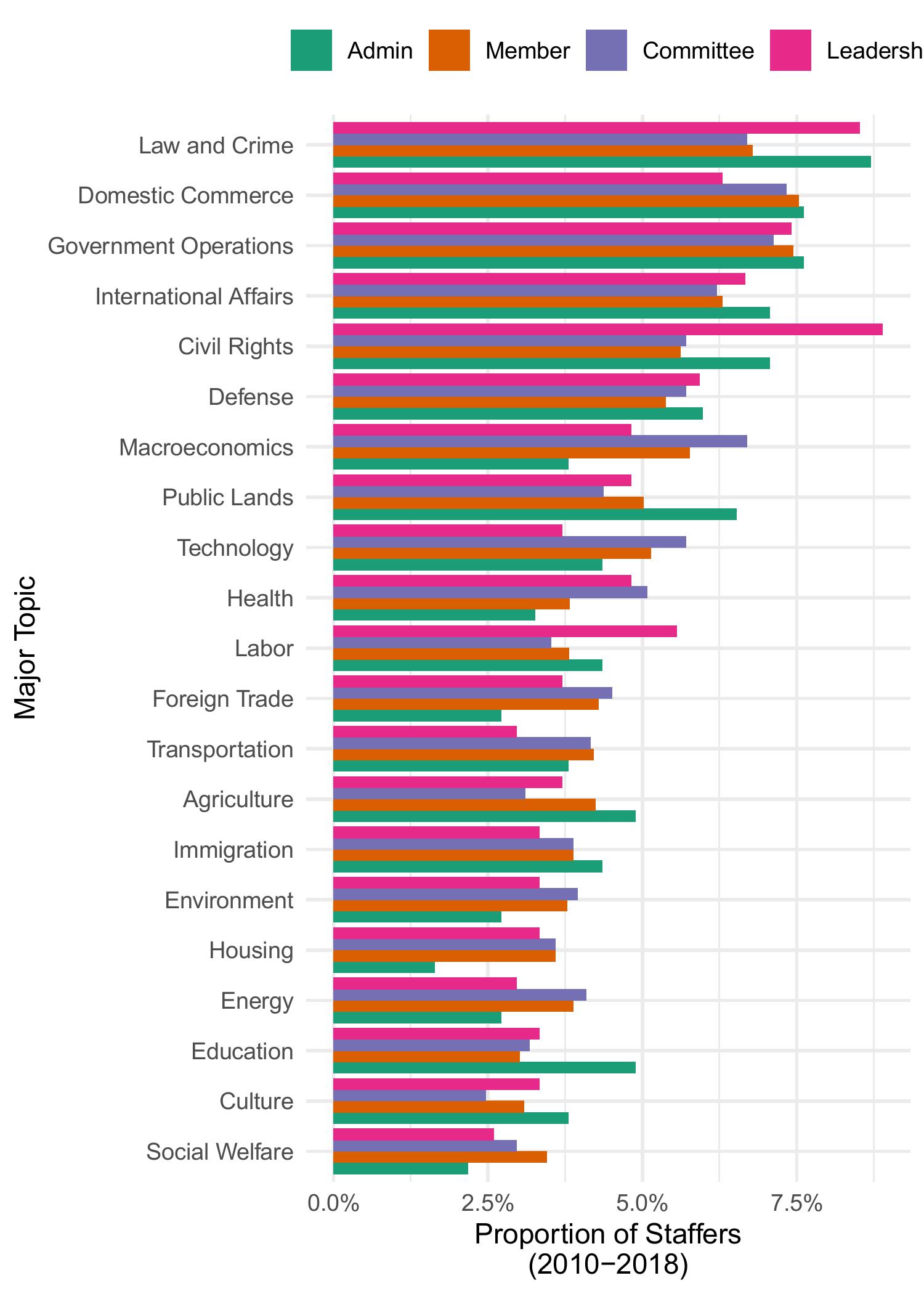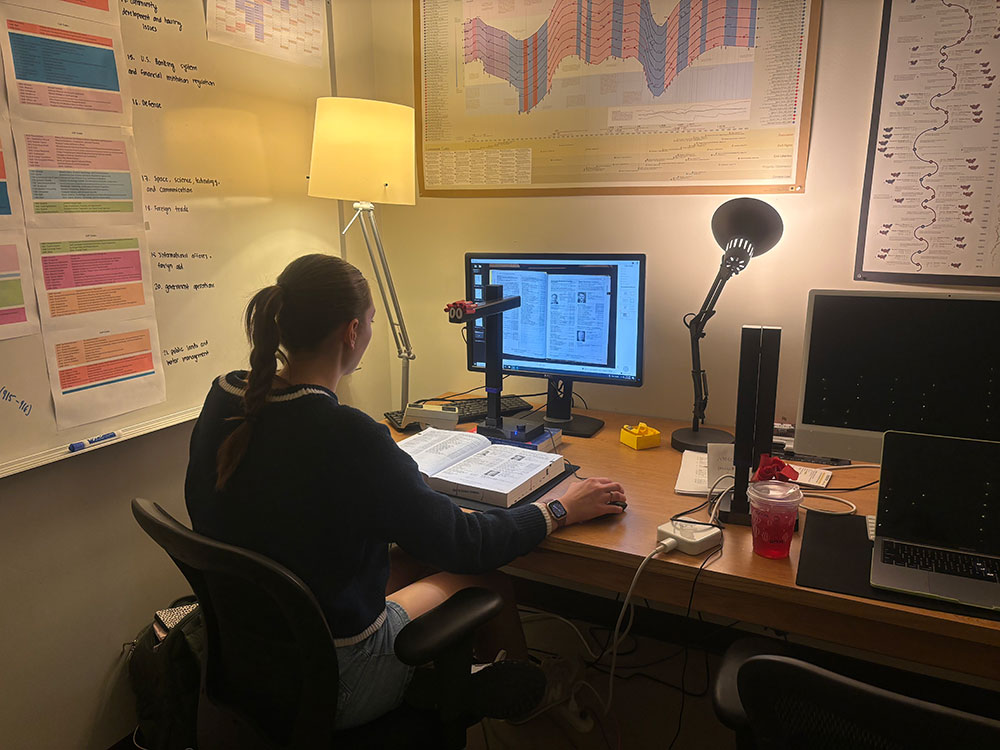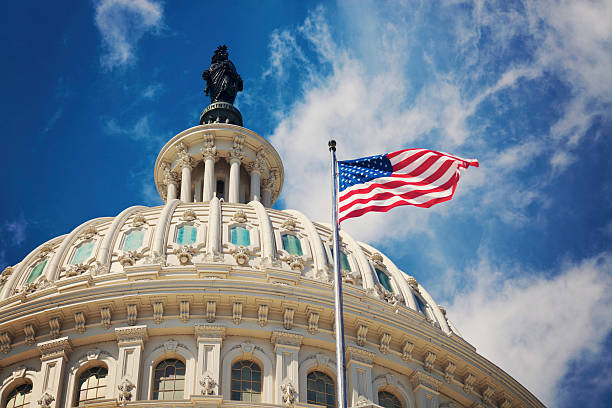The APRILab analyzes the political system in the United States and identifies actionable areas for institutional reform. Here are some things we are currently working on:
- Comparative Agendas Project (CAP) policy coding with Purdue University's Program on American Institutional Renewal, where we sort and categorize policy areas.
- Digitally archive congressional directories and process them into a publicly accessible database.
- Analysis of congressional research allocation over time to understand the growing lack of institutional knowledge.
The lab collaborates with internal and external experts in the national political reform community. Lab assistants work on a variety of projects that address significant institutional problems like democratic backsliding, and unequal political influence. Through coding assignments, congressional staff directory scanning, and political research the lab aims to produce original, evidence-based research on institutional political reform.
Current Research Projects
Coding Projects
In alignment with JMU’s advancement into an R2 research institution, another APRILab goal is to increase research impact. The lab is adding to Dr. LaPira’s previous experience as a fellow at the House Select Committee on the Modernization of Congress. His work in that committee contributed to key recommendations that resulted in the largest pay increase for congressional staffers to date. We continue this research to catalog professional histories using optical character recognition (OCR) well back in time, for both sides of the Capitol. In the end, we will have put together the largest, most comprehensive, and most detailed congressional staffer database ever. Long term, we hope to use this vast data collection to help fix how Congress works for the American people.


Congressional Staff Directory Archiving
Cooperative Study of Public Leaders
In the future, we plan on surveying public servants and political experts in Washington and collecting new data on government relations professionals to provide even more transparency into the transformation of politics from the 1970s to the modern era. In response to the ever-changing nature of information exchange, we will also bring current political news directly to the American people. We will share a breakdown of complex political information to inform and educate people on local, national, and international issues.

Methodology
Step 1: Obtain staffer directories
- Partner with JMU Interlibrary Loan librarian
- Receive congressional staffer directories from universities across the country
Step 2: Digitally archive selected entries
- Line up pages under the document scanner according to specific settings
- Convert analog page into digital image
Step 3: Process digitized pages
- Using Optical Character Recognition (OCR)
- Validate the data collected through OCR
Step 4: Join with congressional payroll database
- Digitally combine with publicly available employment information
- Disambiguate names and correct errors
